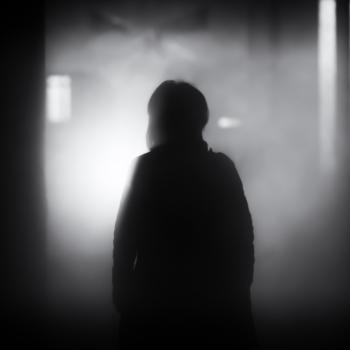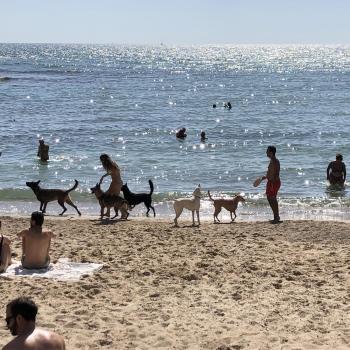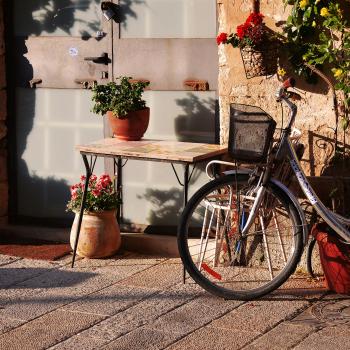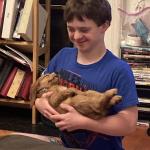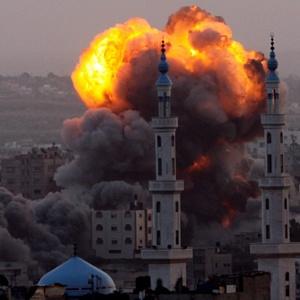 This morning, as I tried to awaken from a fitful night’s sleep, I turned to “Darkness Falls on Gaza,” an opinion piece by Mohammed Omer in the New York Times.
This morning, as I tried to awaken from a fitful night’s sleep, I turned to “Darkness Falls on Gaza,” an opinion piece by Mohammed Omer in the New York Times.
The piece begins,
“Ramadan, when night descends, is usually a joyous time. Friends and family gather to break their fast at the iftar meal. Not this year.”
“Nights are the worst. That is when the bombing escalates. Nowhere is safe. Not a mosque. Not a church. Not a school, or even a hospital. All are potential targets.”
I was hooked. Even if I hadn’t been anxiously following the news out of Israel and Gaza the last few weeks, I would have been hooked by the simple, clear, dramatic yet restrained writing.
You think the day’s long fast is challenging? Think again. You think there’s a feast with family and friends to look forward to at the end of the day? Think again.
We know, those of us who have been obsessively following the news, why this year is different.
I hunger for the stories, the lived experience, the telling details. Enough with the rationales, the justifications, the opinions, the politics-spin-politics-spin. Give me the story of one mother. Give me the story of a daughter, a son.
Because I’m a Jew, and because I lived in Israel for three years in the late seventies, and because there, in my twenties, I discovered the richness of Judaism and Jewish civilization, and my life was pointed in a direction in which it has continued to this day, I feel it’s my obligation to hear the stories of Palestinians.
So, I’m grateful for Omer’s piece.
Yet, I remind myself, no story about one family’s grief, another family’s rage, told in the midst of this war, is just a story, free of political purposes.
The opening of Omer’s opinion piece uses familiar narrative conventions to gain his reader’s interest and sympathy: trouble has come to town, and not just at any time but, for the victims, during the holy month of Ramadan.
Ramadan: maybe you don’t know much about Ramadan. But how much do you need to know to appreciate values cultivated by its observance? Believe in self-discipline? It takes self-discipline to observe a day-long fast, day after day after day for twenty-nine or thirty days. How about family and community? Observing Ramadan strengthens bonds among family and friends who join together at the end of each day’s fast to share a meal.
But maybe you prefer fierce independence, what America stands for. But can America stand as “one nation” if it’s a nation of 318,502,581 (the population according to the U. S. and World Population Clock when I checked just now) fiercely independent citizens?
If you, dear American reader, cannot relate to Ramadan, maybe your sympathies are aroused by this: the victims of this story have no place to hide, not even places conventionally considered off limits to military attacks: a mosque, a hospital, a school.
Omer transports you to the scene:
“On Monday the Israeli military fired artillery rounds at Al Aqsa hospital in Deir al-Balah, central Gaza…Dr. Khalil Khattab, a surgeon, was operating on a patient when the first shell struck. He ran to the floors below to discover at least four dead and dozens of colleagues—doctors, nurses, orderlies and administrators—injured. The medical staff had become patients.”
(Yes, but. Yes, but. I know. I know. I know. They hide _____ there. They live among _____. They this, they that, they the other, which is why we must this, that, and the other, heroically trying to minimize harm to uninvolved people.)
But I omitted a few words from the descriptive passage I just quoted. Here’s the complete first sentence: “the Israeli military fired artillery rounds at Al Aqsa hospital in Deir al-Balah, central Gaza, claiming [my emphasis] to target a cache of anti-tank missiles”. A doubtful nod to the Israeli position.
Now meet the al-Baba family, a family of fifteen. A “corrugated tin roof,” Omer tells us, was all that stood between them and the bombs.” Because other families have been killed in their homes, when a drone is heard overhead, “for safety, [Mr. al-Baba] split [his] family into different rooms—a scene played out in nearly every home in Gaza, a grim shell game of family members.”
I know this story! It’s the story of Jacob, on the eve of his reunion with Esau, dividing his family, herds, and camels into several camps, so that if Esau and the 400 men accompanying him were to attack, Jacob wouldn’t lose everyone and everything dear to him.
The authors or Author of the Bible knew something about conflict, violence, revenge. The Bible: it’s my story. It’s Omer’s story, too.
In the end, Omer doesn’t use a human shield, hiding his argument behind a few civilians of Gaza.
“A cease-fire agreement is possible, but all parties need to be at the table…. Even peace might be possible—if the international community has the courage to engage in dialogue with Hamas.”
Here’s another act of courage. What if, for a moment, in a safe place—no bombs, no blockade—we could suspend the urge to assign blame and the urge to find solutions? What if, for that moment, we could just sit with each other’s suffering, each other’s pain—historical, existential, communal, familial, personal? What might happen then?
I am saddened by the loss of life and suffering in Gaza. I am saddened by the suffering and loss of life in Israel. Saddened, too, that conditions resulted in Israel’s current actions. There I go: I couldn’t even make it for more than a few sentences before seeking a cause to explain if not justify Israel’s actions.
Maybe it’s impossible. We are our stories, the stories into which we are born, the stories in which we’ll one day die. But maybe there’s another story we can’t hear, maybe it would become known if, just for a moment, we could sit together, brothers and sisters, in pain, just pain.
Richard Chess is the author of three books of poetry, Tekiah, Chair in the Desert, and Third Temple. Poems of his have appeared in Telling and Remembering: A Century of American Jewish Poetry, Bearing the Mystery: Twenty Years of IMAGE, and Best Spiritual Writing 2005. He is the Roy Carroll Professor of Honors Arts and Sciences at the University of North Carolina at Asheville. He is also the director of UNC Asheville’s Center for Jewish Studies.







